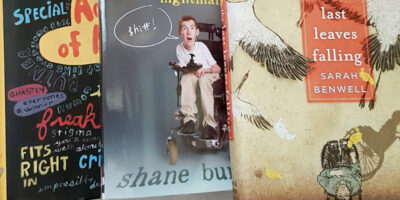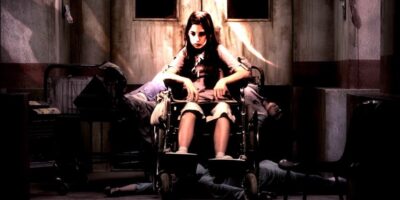Blog contributions
July 15, 2016
The State of Disability on Book Covers
July 8, 2016
Introduction to Disability Terminology
March 27, 2016
(Not) Engaging with Disability: Convenient Approaches in SFF
March 23, 2016
Discussion: Magical Disabilities
March 15, 2016
Disability Metaphors in Sci-Fi and Fantasy
April 30, 2015
Review: Isla and the Happily Ever After by Stephanie Perkins
April 29, 2015
Interview with Marieke Nijkamp of We Need Diverse Books
April 26, 2015
Happy Endings and Overcoming Autism
April 19, 2015
Narrative Devices and the Autism Voice
April 13, 2015
Interview with Anne Ursu about The Real Boy
April 13, 2015
Review: The Real Boy by Anne Ursu
August 1, 2014
The Mystical Disability Trope
July 25, 2014
Discussion: Intersectionality and Disability
July 18, 2014
Discussion: Warning Flags and Turn-Offs
July 11, 2014
Discussion: If We Could Tell an Author One Thing …
July 7, 2014
Interview with Shaunta Grimes about Viral Nation
February 7, 2014
Review: Viral Nation by Shaunta Grimes
July 25, 2013
Discussion: Disability tropes
July 15, 2013
Review: The Gone series by Michael Grant
July 11, 2013
Discussion: Tips for Research & Respectful Writing
July 4, 2013






















